When you’re a musician, there comes a time when you need to take your first steps into a recording studio, and this can be a scary experience for budding musicians trying to break into the industry. Brooklyn has a legacy for producing great bands and singers, but the music scene in this wonderful part of New York is more than the musicians it creates.
The thriving music scene boasts a host of record shops, venues, creativity, and studios. When you’re an emerging artist, a great Brooklyn recording studio is the perfect place to take your career to the next level, but how can you make the most of your recording sessions? Our guide will help navigate you through everything you need to know and do before you take those first steps into the studio.
Make A Plan
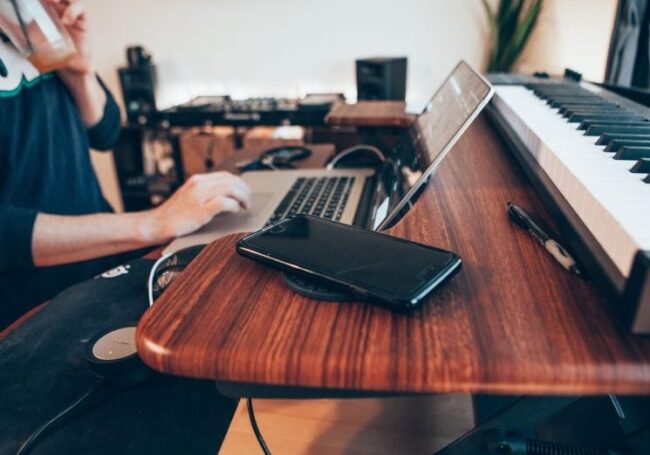
Whether it’s your first time in a recording studio or you’re an experienced musician, making a plan is essential for getting the most out of your session. Before you begin, sit down with the studio’s producer or engineer to talk about the record you want to make.
Having a proper plan will ensure you find the right tools to achieve the desired effect, and it will also help you determine how much time you will require to get everything done efficiently. This is also the perfect opportunity to inquire about any available resources, such as free drum kits, that could enhance your recording session. When you sit down with the producer or engineer, it will be the perfect time to not only create a plan but to go over any demos you have while discussing the expectations and rules you’ll have of each other.
Being on the same page with the recording studio is essential for creating a better session for everyone involved. For the perfect place in Brooklyn to begin your music studio journey, check out these Brooklyn recording studios from PIRATE.COM.
Be Prepared
Unless you have an unlimited budget, arriving at the studio prepared will go a long way to ensuring a smoother experience. Learn your songs down pat before you head to your studio session; this will lead to needing fewer takes in your session, which will mean you can get more done in less time.
Being prepared and utilizing your time effectively will provide you with an excellent opportunity to experiment with your creations which could be the difference between your record being good and being great.
Budget Appropriately
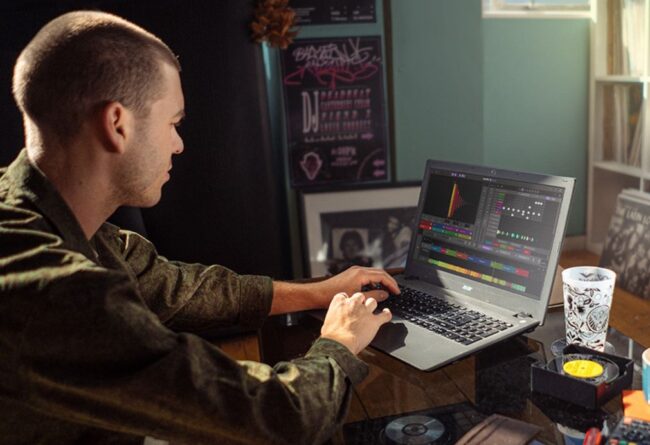
Appropriate budgeting should go without saying when you book time in a recording studio. Talk with the studio before you book to understand exactly how much time you will need and what it will cost. Some records require more time and will need more than one session to complete; others can be done in one night; if you’re not sure if the standard hour will be enough, having a conversation with the studio will provide you with expert advice on how to proceed.
Positive Thinking
It is crucial to remain positive when you make a record as things will go wrong or may not pan out in the way you hoped for; guitar strings may break mid-session, or you struggle to hit the same vocal notes you practiced at home.
These problems will be frustrating, but it’s vital that you don’t let them get you down. Some records are polished to perfection, but some of the best work out there have minor mistakes or imperfections that make them phenomenal.
The soul of your music will come from being human and accepting your mistakes as they happen. Use the chaos of mistakes as fuel to turn your record into something truly unique.
The Oblique Strategies
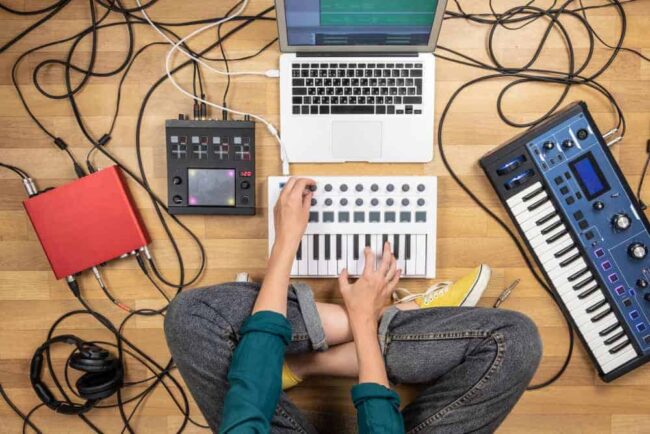
If you find yourself in need of inspiration or you’re struggling with a creative block, it may be time to consult the Oblique Strategies. These strategies were created by Brian Eno and Peter Schmidt as a way to combat creative dilemmas.
When you hit a creative block, you draw a card or series of cards and use the advice to approach the problem in a different way. Tackling a problematic situation from another point of view is a fantastic way to break through the creative block and get back to making your music.
Bring Homemade
If you’ve been experimenting at home or have created a few cool demos in advance of your recording session, don’t be afraid to bring those with you; they can be used as reference points or even included on the album. Practicing with home recording before a session in a professional studio is also a great way to save time, especially if you’re feeling the pressure to get the vocals or instruments just right.
With at-home practice, you’ll not only have the opportunity to plan out how you want the finished piece to sound, but you’ll be able to bring in unique art that can be included as bonus material on the record.
Use References
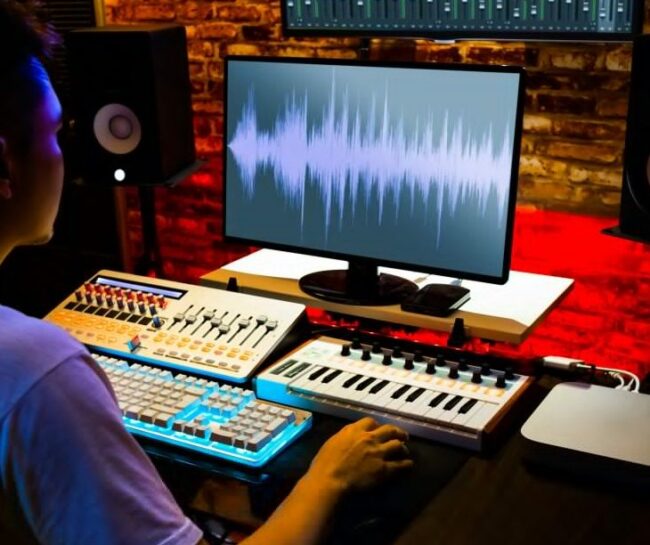
During your first time, it can be challenging to find the right words to express what you want; this could be a certain mood or a specific production technique. If there are particular artists that use methods you like or have a similar sound, bring them with you to help convey what you’re trying to create.
Remain Sober
It may seem obvious, but it is essential that you remain sober during your recording sessions. Many people get caught up in the Rock ‘N’ Roll culture and try to emulate it in every aspect of their music, but when you’re at a studio, you’re there to get a job done.
No studio wants to deal with a musician that can barely stand, let alone create music, and rendering yourself useless will only cost you money as well as waste everyone else’s time. Save the partying until you’ve captured the perfect record and have something to celebrate.
Avoid Overcrowding
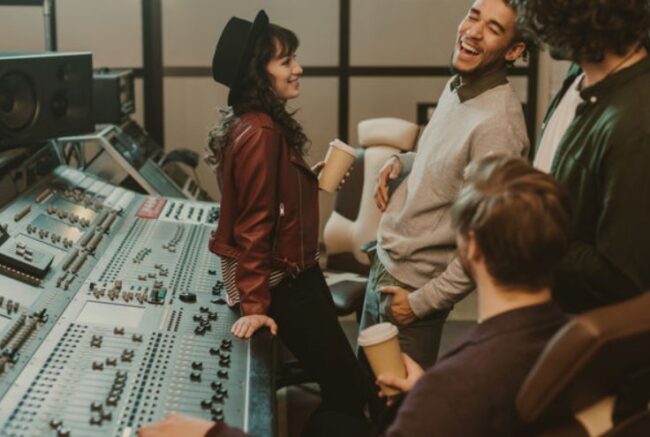
It can be great to have your friends and family there to participate in your recording session to provide support or act as cheerleaders. Many of your loved ones may be excited and curious to see the inside of a recording studio for the first time. However, the reality is that creating a record takes time, focus, and concentration.
Having the studio full of people making noise or distractions will take away from that and possibly derail the entire session. Taking support is fine, but be mindful of who you take and how many people you bring with you.
